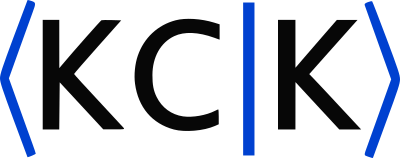Online Seminars on Quantum Information in Poland. Warsaw time zone.
Future events
No events are found.
Past events
Speaker: Giacomo Sorelli (Fraunhofer Institute for Optotronics, System Technology and Image Exploitation)
Abstract
Quantum optical metrology aims to identify ultimate sensitivity bounds for the estimation of parameters encoded into quantum states of the electromagnetic field. In many practical applications, including imaging, microscopy, and remote sensing, the parameter of interest is not only encoded in the quantum state of the field, but also in its spatio-temporal distribution, i.e. in its mode structure. In this mode-encoded parameter estimation setting, we derive an analytical expression for the quantum Fisher information valid for arbitrary multimode Gaussian fields. To illustrate the power of our approach, we apply it to the transverse localisation of a Gaussian beam, and to the temporal separation between two pulses. In both cases, we will show which are the relevant modes where to deploy quantum resources, i.e. squeezing, to achieve a sensitivity enhancement.Speaker: Christian Bertoni (Dahlem Center for Complex Quantum Systems, Freie Universitat Berlin, Germany)
Abstract
Classical shadows have recently emerged as an efficient method to extract expectation values of observables using randomized measurements. In particular, two schemes have been proven to be able to efficiently perform this task for certain classes of observables: random single-qubit Clifford measurements, and random global Clifford measurements. In this talk, I will present a new scheme in which measurements in the computational basis are performed after the application of a brickwork circuit of random two-qubit gates of an arbitrary depth. This interpolates between the two known cases, which correspond to either 0 or linear depth. At a depth scaling logarithmically in the number of qubits and for an average state, this scheme has the same sample efficiency as the global Clifford measurements scheme, while retaining some of the favorable characteristics of the single-qubit Clifford measurements scheme. This provides strong evidence that logarithmically deep Clifford circuits, which are experimentally feasible to implement, can be used in place of global Clifford gates for classical shadows.Speaker: Bartosz Grygielski (Faculty of Physics, UJ)
Speaker: Ravishankar Ramanathan (Hong Kong)
Abstract
Abstract: It is well known that classical tools do not allow the extraction of randomness from a single random source. On the other hand, quantum theory allows for such extraction even within the device-independent framework. While practically feasible protocols have been proposed for randomness sources that possess a specific Santha-Vazirani structure, it has remained an open problem to derive a finite-device protocol for extraction from an arbitrary min-entropy source. In this talk, we will present and outline the security of such a device-independent protocol with the following features: (1) robust amplification of an arbitrary min-entropy source, (2) usage of a device with a constant number of components, (3) security in the presence of a quantum adversary.Speaker: Adam Sawicki (CFT PAN, Warsaw)
Abstract
Universal quantum gates play a central role in quantum computing. It is well known that in order to construct a universal set of gates for many qudits it is enough to take a universal set for one qudit and extend it by a two-qudit entangling gate. On the other hand, it is a great challenge to find a time efficient procedure that enables deciding if a given set of one-qudit gates is universal. In this talk I will connect the universality problem with the theory of t-designs and provide a universality checking procedure whose complexity scales polynomially with the dimension of the qudit. The talk will be based on: A. Sawicki, L. Mattioli, Z. Zimboras Phys. Rev. A 105, 052602, 2022Speaker: Luis Pedro Garcia Pintos (Joint Quantum Institute and QuICS, University of Maryland)
Abstract
I will give an overview of recent bounds on the speed with which observables can evolve in quantum and classical systems. The bounds typically take the form of uncertainty relations that connect the maximum rate of change of an observable to its standard deviation. Surprisingly, these general bounds are saturated in a range of disciplines. I will illustrate this with an application of these techniques to quantum annealing.Speaker: Ingo Roth (Quantum research centre, Technology Innovation Institute, Abu Dhabi, UAE)
Abstract
Randomized benchmarking protocols have become the prominent tool for assessing the quality of gates on digital quantum computing platforms. In `classical’ variants of randomized benchmarking multi-qubit gates are drawn uniformly from a finite group. The functioning of such schemes can be rigorous guaranteed under realistic assumptions. In contrast, experimentally attractive and practically more scalable randomized benchmarking schemes often directly perform random circuits or use other non-uniform probability measures. An important example for such a non-uniform protocol is linear cross-entropy benchmarking. The theoretical understanding of non-uniform randomized benchmarking is still an ongoing effort. We present a new extension of general theoretical guarantees for randomized benchmarking to non-uniform measures. Combined with results on random walks, our results identify experimental parameter regimes where one can guarantee non-uniform randomized benchmarking protocols to work reliably. On the technical side, we develop a general perturbative description of noise in random circuits in terms of harmonic analysis that can also be used to analyze the noise-robustness of random circuit protocols beyond RB.Speaker: Paweł Horodecki (Gdansk)
Programme
15.30 – 15:55 Andrzej Jamiołkowski “My memories of Roman Stanisław Ingarden”.
16:00 – 16:55 2022 Ingarden Memorial Lecture
Peter Shor: “The development of quantum error correcting codes”
17:00 – 17:15 coffee break
17:15-17:45 Awarding of Junior KCIK Award for best Bachelor Thesis in quantum Information, talk of the winner
17:45-18:15 Distinguished talk
18:18 The End
